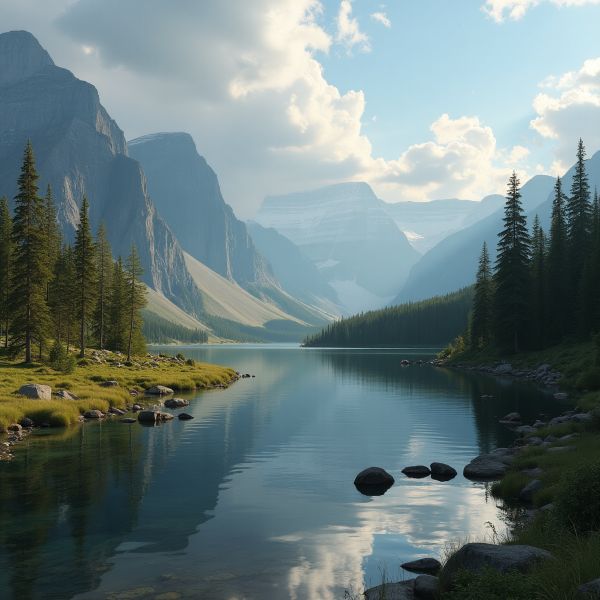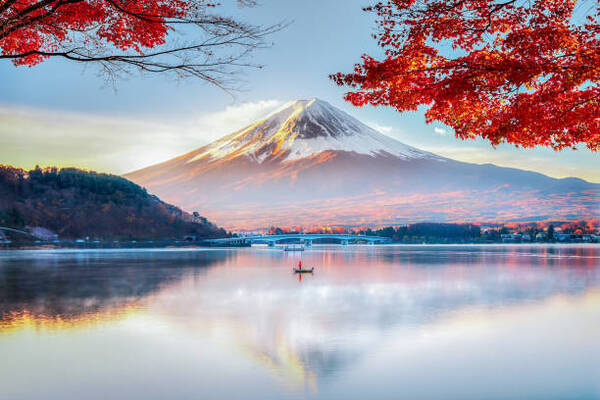≡-Devon Island A Vast, Otherworldly Expanse of Ice and Silence That Resembles Mars Yet Remains the World’s Largest Uninhabited Island, Hidden in the Remote Arctic Wilderness of Canada – Viral of Today
<> Viral of Today <>
Home » Canada Travel News » Devon Island A Vast, Otherworldly Expanse of Ice and Silence That Resembles Mars Yet Remains the World’s Largest Uninhabited Island, Hidden in the Remote Arctic Wilderness of Canada Sunday, June 22, 2025A Remote Frontier of the EarthTucked away in the Arctic wilderness of Canada, Devon Island stands as a vast, uninhabited expanse that few have ever seen firsthand. Though it’s the largest uninhabited island on the planet, its name is rarely heard in everyday conversation. Located in the icy waters of Baffin Bay, within the territory of Nunavut, this massive landmass is part of the Canadian Arctic Archipelago and lies far beyond the reach of typical human settlement.The island takes its name from Devon, a county in England, yet it couldn’t be more different from its namesake. This barren stretch of land has resisted all efforts of colonization, no matter how determined. The final attempt to establish a lasting presence on the island ended in 1951, and since then, Devon Island has remained largely untouched, with the exception of a few visits to maintain historic gravesites scattered across its frozen terrain.Harsh Climate and Unique TerrainDevon Island’s environment is among the harshest found anywhere on Earth. Extreme cold, relentless winds, and an almost complete lack of vegetation and wildlife create a setting that is often described as a polar desert. These conditions make the island extraordinarily difficult for humans to survive in, let alone build a community.Despite this, it draws the attention of those fascinated by the extraordinary. Its desolate landscape is often compared to Mars, and for good reason. The resemblance is so uncanny that the island has become a popular site for scientific studies, particularly those focused on space exploration. Stretching across an area roughly equal to New York State, Devon Island offers a rare environment where researchers can simulate Martian conditions on Earth. They test equipment, practice missions, and study how humans might one day adapt to life on another planet—all in a place where Earth already feels like another world.A History Written in Ice and SilenceBeyond its scientific value, Devon Island holds a deep and solemn history. One of its most famous links to the past is its connection to the Franklin Expedition of 1845. In this fateful journey, 129 crew members aboard HMS Erebus and HMS Terror set sail in search of the elusive Northwest Passage. They never returned.Years later, search teams discovered traces of the lost men on Devon Island, including fragments of clothing, old rope, and hundreds of empty food tins. These haunting remnants, along with graves discovered on nearby Beechey Island, serve as a chilling reminder of the dangers faced by early explorers. Devon Island, in many ways, stands as a silent memorial to their ambition—and their tragedy.Scientific and Space Exploration PotentialToday, Devon Island plays a much different but equally significant role. Its Mars-like landscape has made it a focal point for astrobiological and planetary research. Scientists from around the world come to test ideas and equipment for future missions to Mars and beyond. The island’s isolation and severe conditions provide the perfect stand-in for extraterrestrial environments, allowing researchers to experiment without ever leaving Earth.This scientific activity has also piqued interest in the adventure travel community. As extreme tourism gains popularity, more travelers are looking beyond conventional destinations to places that push the boundaries of human endurance. Devon Island, with its alien scenery and untouched wilderness, offers an extraordinary experience—but only for those brave and prepared enough to face its challenges. Access is still tightly controlled due to the island’s environmental sensitivity and logistical difficulties.Implications for the Travel IndustryThe increased attention on Devon Island reflects a growing shift in the global travel industry. Scientific tourism, where travelers engage in trips focused on research, education, or environmental significance, is becoming more prominent. People no longer seek only leisure—they want purpose, meaning, and unique experiences.Devon Island represents the extreme edge of this movement, acting as a blueprint for how future travel might intersect with scientific exploration and environmental awareness. This could eventually lead to:The rise of educational expeditions to places once considered too dangerous or remoteThe development of virtual travel simulations, especially to mimic missions to MarsA new wave of polar and space-themed adventure tourismStronger emphasis on ecological preservation in sensitive regionsGlobal Relevance and Cultural CuriosityWhat makes Devon Island so compelling is how it captures the imagination. The emptiness of its landscape speaks to our fascination with the unknown, with uncharted territories and forgotten chapters of history. It evokes the spirit of exploration that once led humans across oceans and into space.To those drawn to mystery and isolation, Devon Island offers something deeper than sightseeing—it offers a sense of connection to both the past and the future. In a world increasingly crowded and connected, places like this are becoming rarer. Devon Island challenges travelers to redefine what a destination truly means. It’s not about comfort, but about discovery, resilience, and perspective.Devon Island stands apart as one of Earth’s last great unknowns. It is a place where the threads of history, science, and adventure all intertwine. From its tragic past with the Franklin Expedition to its modern-day role in space research, the island tells a story of human ambition—both its triumphs and its limits.As the world continues to shrink through technological progress, places like Devon Island remain as reminders of mystery, of natural forces stronger than human will, and of the boundless spirit of exploration. Whether imagined as the next great destination for daring travelers or the proving ground for interplanetary missions, this island ensures that our thirst for discovery is far from over.
This information will surprise you!
See also
- Read until the end to discover everything.
- Important information you need to know.
- Interesting facts and helpful tips.
Conclusion
Did you enjoy the news? Keep following us daily!













